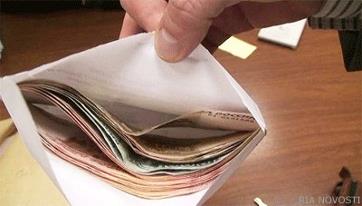Kremlin continues its corruption crackdown on officials with a trust funds ban

(Business New Europe – bne.eu – May 7, 2014) The Kremlin launched a new initiative to outlaw the use of non-transparent trust funds for the holding of shares, Vedomosti reported on Tuesday. One of the biggest problems investigators face in Russia is the widespread use of trust funds to own shares in companies. Trust funds to not have to declare who their benefici…
The Kremlin launched a new initiative to outlaw the use of non-transparent trust funds for the holding of shares, Vedomosti reported on Tuesday.
One of the biggest problems investigators face in Russia is the widespread use of trust funds to own shares in companies. Trust funds to not have to declare who their beneficial owners are.
The most notorious use of trust funds was to hold shares in IPOC, a holding company that held shares in the mobile telephone compan y Megafon. It was widely believed that former telecommunications minister Leonid Reiman was the beneficial owner behind IPOC, which was locked in a ownership dispute with the Alpha group in the middle of the last decade.
Alfa accused Reiman of corruption were unable to prove it has all the shares in IPOC were held in trust. Even today Forbes magazine ranks Reiman as one of the richest men in Russia with over $1bn.
Trust fund ownership was also associated with a separate scandal involving Itera, a nominally independent gas training company that came to dominate most of Gazprom’s gas exports to countries within the CIS. It was widely believed that Itera was owned by Gazprom’s senior management under Rem Vyakhirev, who was sacked by Russian President Vladimir Putin in 2001. Again the allegations could never prove because Itera was owned by trust funds.
Putin has launched a major anticorruption drive that has already led to a ban on Duma deputies holding foreign property and overseas banks accounts. The trust fund ban is more of the same as it will make it more difficult for government officials to hide the ownership of assets.
The new law is intended to increase transparency and identify the beneficiaries of domestic businesses. That means trust funds will have to declare their beneficial owners are in order to be allowed.
The central bank of Russia introduced similar rules several years ago, refusing to grant licenses to banks where the beneficiary owner is not identified. Likewise last year the government introduced a new rule that state-owned companies could not hire subcontractors unless the beneficiary owners of the subcontractor was identified. State-owned companies ended up cancelling between 40% and 60% of their contracts as a result.
Vedomosti reported that the plan is supposed to be submitted for Parliamentary approval by December this year. The draft law will create a mechanism for gatheri ng information about domestic companies and a ban on doing state business unless the beneficial owners are declared.
